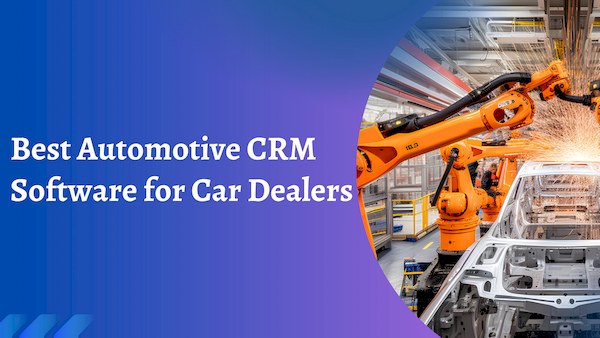In today’s digital age, governments around the world are leveraging technology to enhance the delivery of public services, improve citizen engagement, and increase overall efficiency. One crucial tool that has been instrumental in achieving these goals is Government CRM (Customer Relationship Management) software. In this article, we will explore the amazing world of government CRM software, its benefits, features, and how it is transforming the way governments interact with citizens.

What is Government CRM Software?
Government CRM software is a specialized type of software designed to help government agencies manage their interactions with citizens, businesses, and other stakeholders. It provides a centralized platform for storing and analyzing data, tracking communications, and automating workflows. By using government CRM software, agencies can streamline their operations, improve responsiveness, and deliver more personalized services to the public.
Benefits of Government CRM Software
The benefits of government CRM software are numerous and far-reaching. Some of the most significant advantages include:
- Enhanced Citizen Engagement: Government CRM software enables agencies to engage with citizens more effectively, providing them with timely and relevant information, and responding promptly to their queries and concerns.
- Improved Service Delivery: By automating workflows and streamlining processes, government CRM software helps agencies deliver services more efficiently, reducing wait times and increasing citizen satisfaction.
- Increased Transparency: Government CRM software provides a transparent and accountable system for tracking interactions, enabling agencies to demonstrate their commitment to openness and accountability.
- Better Data Management: Government CRM software provides a centralized platform for storing and analyzing data, enabling agencies to gain valuable insights into citizen behavior, preferences, and needs.
- Cost Savings: By reducing manual processes and improving efficiency, government CRM software can help agencies save time, money, and resources.
Features of Government CRM Software
Government CRM software typically includes a range of features designed to support citizen engagement, service delivery, and data management. Some of the most common features include:
- Contact Management: A centralized database for storing citizen contact information, interaction history, and preferences.
- Case Management: A workflow management system for tracking and resolving citizen inquiries, complaints, and requests.
- Communication Management: Tools for sending targeted emails, text messages, and social media updates to citizens.
- Analytics and Reporting: Advanced analytics and reporting capabilities for analyzing citizen data, behavior, and engagement patterns.
- Integration with Other Systems: Integration with other government systems, such as permit management, licensing, and payment processing.
Examples of Government CRM Software
There are many examples of government CRM software in use today, including:
- Salesforce for Government: A cloud-based CRM platform designed specifically for government agencies, providing a range of features and tools for citizen engagement and service delivery.
- Microsoft Dynamics 365 for Government: A comprehensive CRM platform that integrates with other Microsoft products, providing a centralized platform for managing citizen interactions and data.
- GovDelivery: A cloud-based CRM platform designed for government agencies, providing tools for email, text, and social media communication, as well as analytics and reporting.
Implementation and Best Practices
Implementing government CRM software requires careful planning, execution, and ongoing support. Some best practices for implementation include:
- Define Clear Goals and Objectives: Establish clear goals and objectives for the CRM system, including improved citizen engagement, service delivery, and data management.
- Conduct Thorough Needs Assessment: Conduct a thorough needs assessment to identify the agency’s specific requirements, including features, functionality, and integration with other systems.
- Develop a Comprehensive Training Program: Develop a comprehensive training program to ensure that staff are equipped to use the CRM system effectively.
- Establish a Data Governance Framework: Establish a data governance framework to ensure that citizen data is collected, stored, and used in accordance with relevant laws and regulations.
- Monitor and Evaluate Performance: Monitor and evaluate the performance of the CRM system regularly, making adjustments and improvements as needed.
FAQ
Q: What is the cost of government CRM software?
A: The cost of government CRM software varies depending on the specific solution, features, and implementation requirements. Some solutions may be available at no cost, while others may require a one-time or ongoing subscription fee.
Q: How do I choose the right government CRM software for my agency?
A: Choose a government CRM software that meets your agency’s specific needs and requirements, including features, functionality, and integration with other systems. Consider factors such as scalability, security, and customer support.
Q: Can government CRM software be integrated with other government systems?
A: Yes, many government CRM software solutions can be integrated with other government systems, such as permit management, licensing, and payment processing.
Q: How do I ensure the security and integrity of citizen data in a government CRM system?
A: Ensure the security and integrity of citizen data by establishing a data governance framework, conducting regular security audits, and implementing robust data protection measures.
Q: What kind of training and support is available for government CRM software?
A: Many government CRM software vendors provide comprehensive training and support, including online tutorials, user guides, and customer support services.
Conclusion
Government CRM software is revolutionizing the way governments interact with citizens, providing a platform for enhanced engagement, improved service delivery, and better data management. By leveraging the benefits and features of government CRM software, agencies can improve citizen satisfaction, increase transparency, and reduce costs. Whether you are a government agency looking to implement a new CRM system or seeking to improve your existing one, it is essential to choose a solution that meets your specific needs and requirements. By doing so, you can harness the power of government CRM software to deliver more effective, efficient, and citizen-centric services.
Closure
Thus, we hope this article has provided valuable insights into Revolutionizing Citizen Engagement: Amazing Government CRM Software. We appreciate your attention to our article. See you in our next article!

